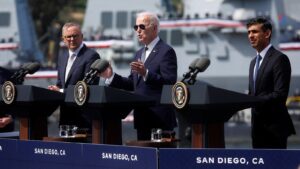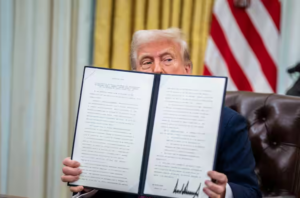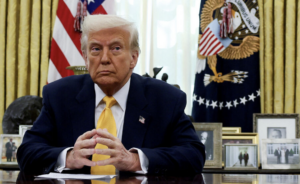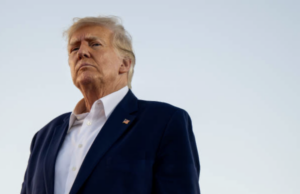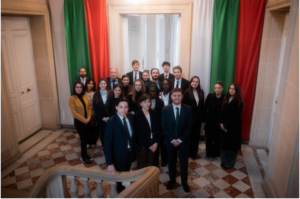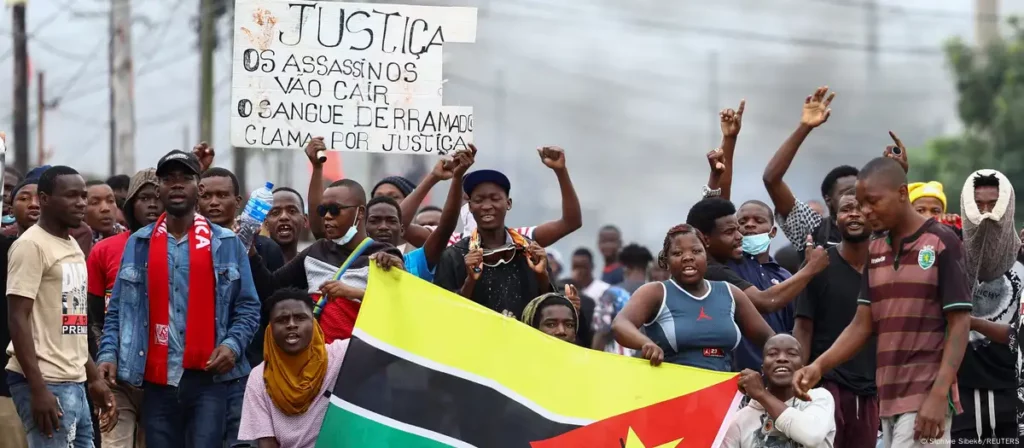Causes of the Protests in Mozambique
The protests started because of public dissatisfaction with corruption and the dysfunction of the state. The ruling party, FRELIMO has been in power since Mozambique’s independence in 1975. It declared its candidate Daniel Chapo winner with 65% of the votes. He was succeeding Filipe Nyusi from the same party.
Opposition leader of RENAMO, Venâncio Mondlane, who officially received 24% of the vote, disputed these results, alleging electoral irregularities. According to him, the vote was biased by electoral and judicial institutions too close to power.
International observers, including Western nations and the EU, noted irregularities during the counting process, including unjustified alterations of election results.
A 3-day General Strike through Mozambique
The National Assembly was sworn in on the morning of January 13, 2025. Back from exile, Mondlane called for a national protest to contest these results. A 3-day general strike was launched the same day to paralyze the country before Chapo’s inauguration on January 15.
Following his call, shops closed, transport stopped, barricades were erected and garbage had not been collected in the capital for over 2 months. Moreover, violent clashes broke out between protesters and security forces. Tear gas was used to disperse the crowds. Moreover, the police occasionally opened fire on the protesters, killing some and wounding others.
Protests Break Out even in Parliament
On January 13, 2025, during the first meeting of the new deputies of the Assembly, about thirty seats remained empty. These seats belong to deputies from the two main opposition parties, RENAMO and DMM (Democratic Movement of Mozambique). They boycotted the session to protest the results of the general elections and demanded a recount of the votes.
On the other hand, PODEMOS, another opposition party which supported Mondlane during the presidential election, was present. Ivandro Massingue, a deputy from Podemos, explained that his party positions itself as a true defender of the people, in contrast to the parties that boycotted the session, implying that they are not listening to the needs of the citizens and are not willing to work within the institutions to change the situation.
Mozambique Imposed Social Media Restrictions
In response to the national unrest, authorities imposed social media restrictions to control the flow of information. NetBlocks – a London-based organization monitoring cybersecurity, internet governance, and online freedom – confirmed that internet restrictions were imposed in Mozambique, affecting platforms such as Facebook, Instagram, and WhatsApp.
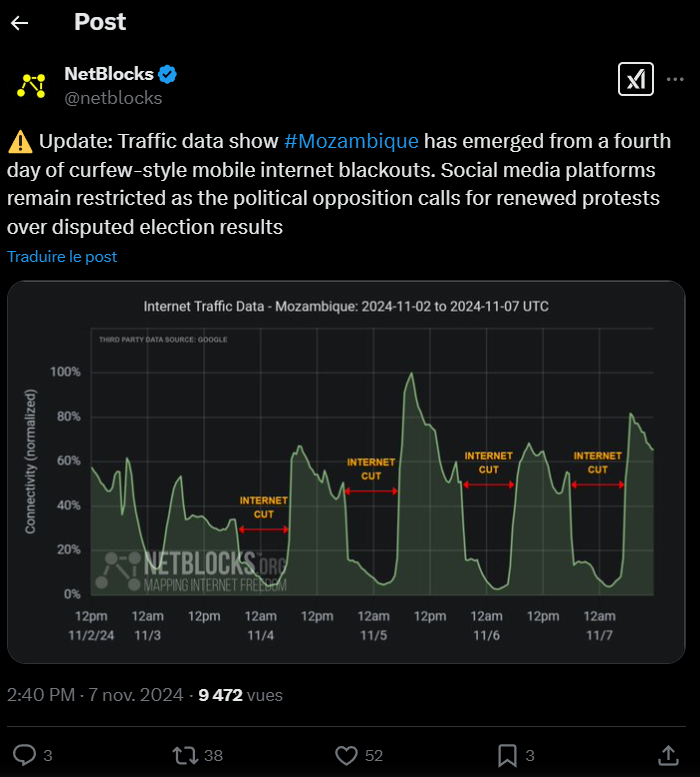
Opposition Figures Assassinated
These protests followed the assassinations of two opposition figures close to Mondlane: his lawyer, Elvino Dias, and Paulo Guame, a member of PODEMOS, another opposition party.
The events took place on the night of October 18, 2024, in Maputo. According to witnesses, the two men, sitting at the front of their vehicle, were shot with twenty close-range bullets after their car was stopped in the city center. This double murder raises questions, especially since Mondlane’s lawyer was preparing a complaint denouncing fraud in the recent October 9 elections, according to his party.
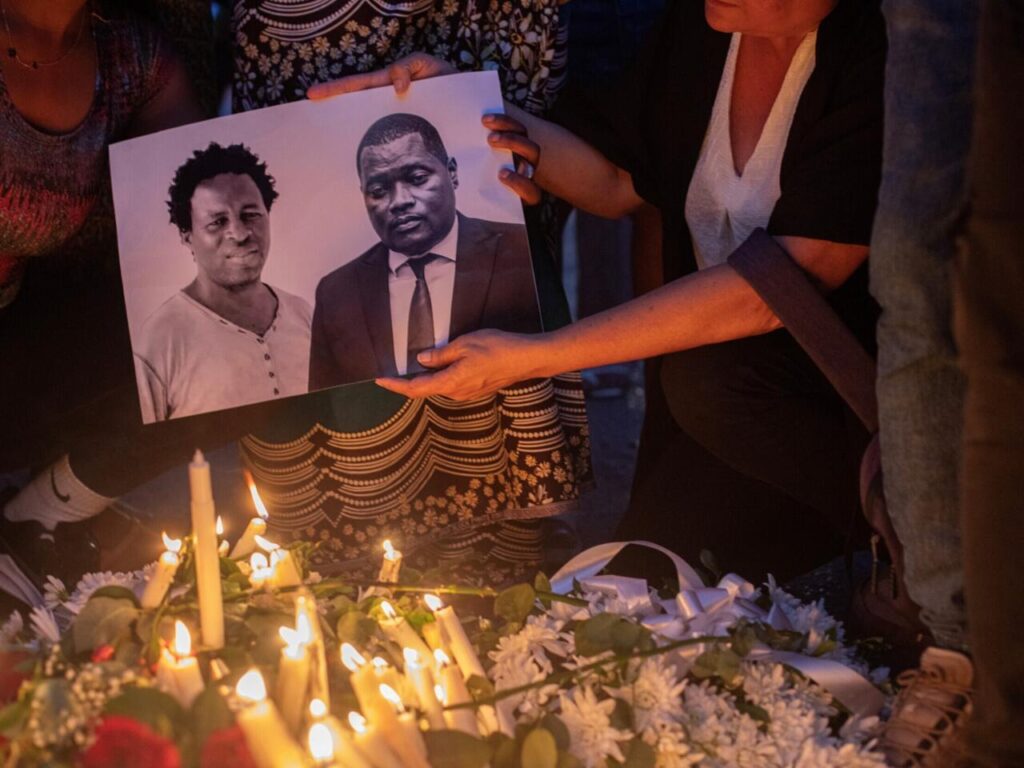
EU Condemned Mozambique’s Political Killings
In a statement, the EU condemned this crime, arguing that “in a democracy, there is no place for politically motivated killings” and called for an “immediate, thorough and transparent investigation that will bring to justice those responsible for this outrageous crime” and “provide clarity on the circumstances in which it occurred”.
This is not the first time Mozambique has experienced assassinations close to election periods. For example, it was the case of Anastacio Matavel in 2019, a poll observer killed by a group of elite Mozambican policemen. However, this time, it is party representatives who were directly targeted.
Violent Repression of the Population
The repression of the protests was severe. According to the local NGO Plataforma Decide, approximately 300 individuals have died. Additionally, there were over 2,000 injured and around 4,000 arrested since October 2024. On January 15, the day of Daniel Chapo’s inauguration, 7people were killed during protests in Maputo and Nampula.
Under Nyusi’s government, loyal people were placed in key positions within the army, intelligence services, and police, in order to strengthen FRELIMO’s power. Moreover, the party can count on the support of the police forces and part of the army to stay in power through repression. These actions are mainly carried out by the police, with the help of special forces and death squads. They are responsible for disappearances, including those of journalists. In contrast, the army has shown some reluctance to follow extreme orders, such as shooting unarmed protesters, leaving these actions to the police.
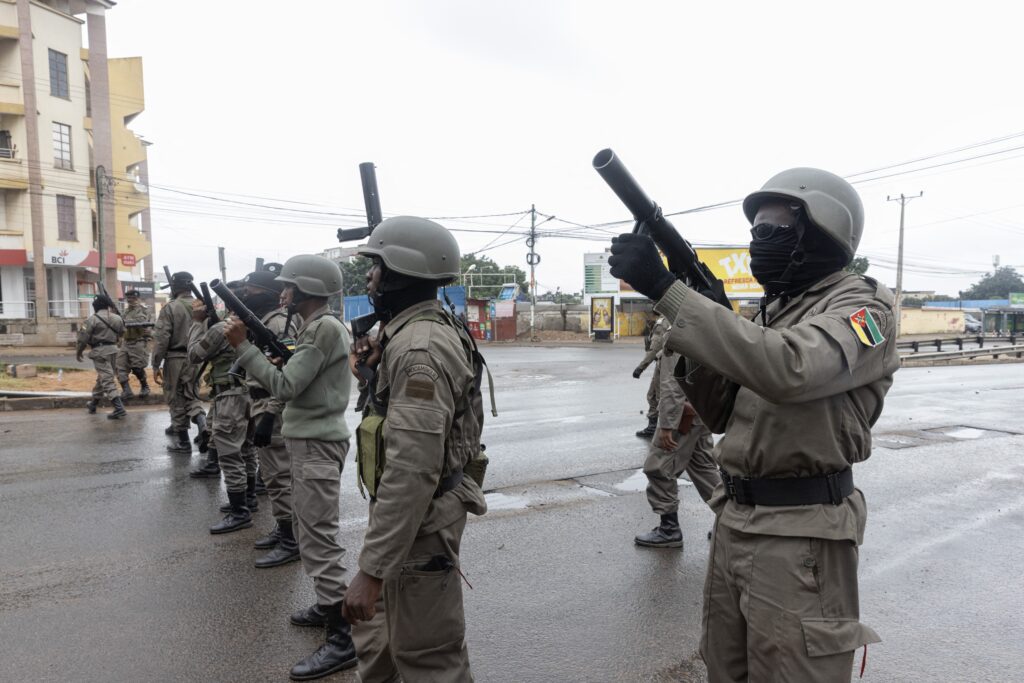
Impact on Mozambique and Internationally
This crisis has severe repercussions on surrounding countries. In November 2024, the Lebombo border between Mozambique and South Africa was temporarily closed due to safety concerns about escalating violence. Currently, Mozambican harbors, which are vital for the South African regions as well as Zimbabwe and Malawi, are still experiencing significant disruptions due to the protests.
Moreover, due to the rise of violence in the country, about 13,000 people crossed into Malawi in late December 2024, and many others fled in the other neighboring countries.
Concerns about the Legitimacy of Chapo
Internationally, this election also raised concerns about the legitimacy of Chapo as president. Indeed, there were only a few foreign leaders attending Chapo’s inauguration. Only the South African President, Cyril Ramaphosa, and Guinea-Bissau President, Umaro Sissoco Embalo, were present, showing limited regional support.
Portugal, as the former colonial power, sent its Minister of Foreign Affairs, Paulo Rangel, instead of a head of state. It cited the « current circumstances » as the reason for not sending higher-level representation.
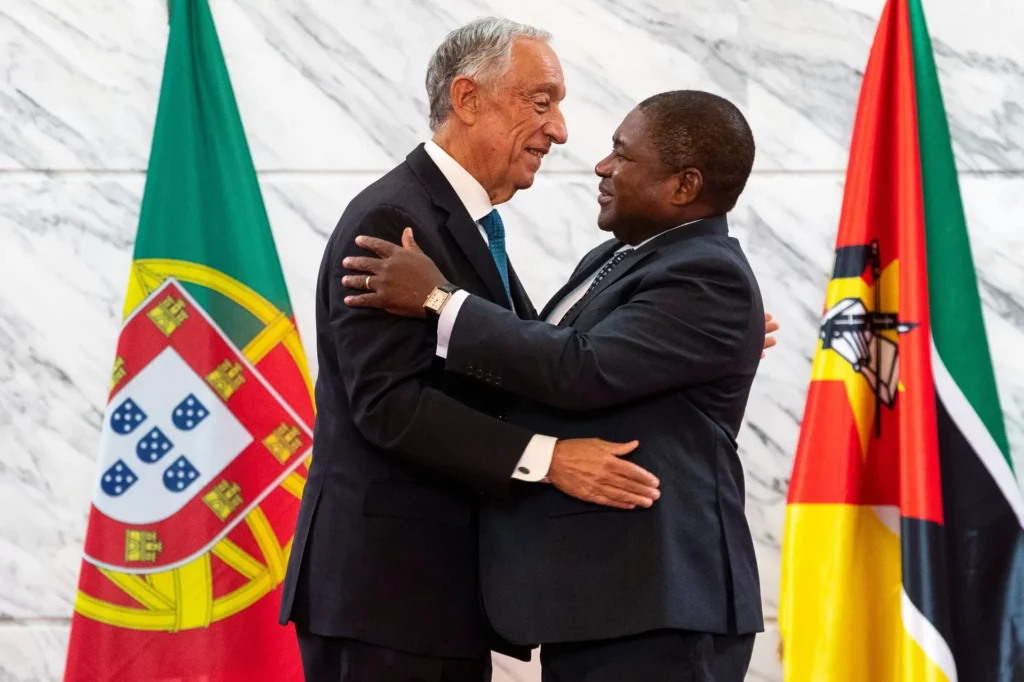
The Measures Proposed by Mondlane for National Reconciliation
In response to the turmoil, Mondlane proposed measures aimed at national pacification. These include the release of detained protesters, financial compensation for victims’ families, substantial investments in housing and support for small and medium-sized companies affected by the protests. He emphasizes that such steps are crucial for reconciliation and peace in Mozambique. However, FRELIMO continues to ignore the opposition, even labeling the protesters as « terrorists ».
Will the President of Mozambique’s Promises Be Kept?
In his inaugural speech, Chapo promised to fight corruption, build a more efficient and transparent nation. What is more, on February 3, 2025, he delivered a speech during the commemoration of Heroes’ Day. That day, he promised to broaden the dialogue to end the post-election crisis by including members of civil society and academics.
However, the lack of direct dialogue with the opposition and the violent repression of protests raise questions about the new government. It also questions the Mozambique’s stability and its respect for human and democratic rights.


